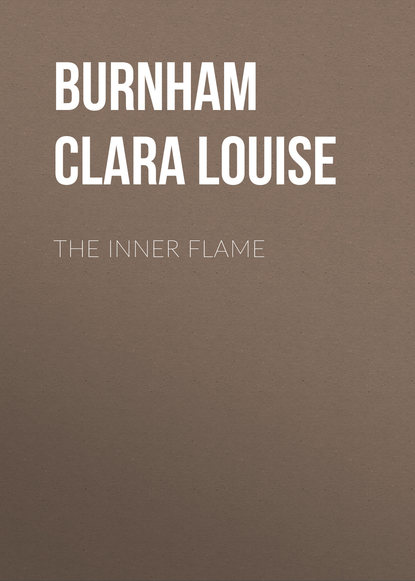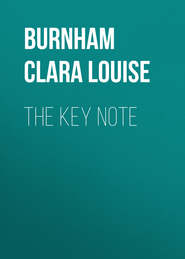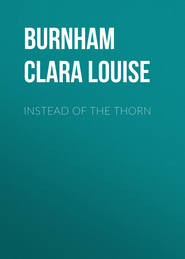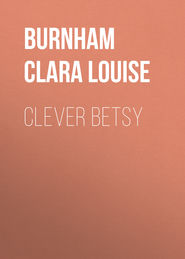По всем вопросам обращайтесь на: info@litportal.ru
(©) 2003-2024.
✖
The Inner Flame
Настройки чтения
Размер шрифта
Высота строк
Поля
"Lucky boy! You have your mother's eyes!" she exclaimed.
"Oh, no," said Mary Sidney; "Phil's are blue."
"Dark with terror, then!" exclaimed Mrs. Fabian, again anxious. "Isn't the storm frightful?"
Phil's amused glance sought his mother's.
"It's sort of spitting outside," he returned, unbuttoning his corduroy coat.
"You're making fun of a tenderfoot," said Mrs. Fabian, watching his keen face admiringly. "Don't pretend. What have you done with my poor innocent husband?"
"He'll be up here in a few minutes with my poor innocent father who has been showing him why he'll never be a millionaire out of that mine."
"What do I care if he isn't, so long as he isn't lost in this storm!"
"I came on ahead because the mail had just been brought in." As he spoke, the young man brought a small bunch of letters and papers from an inner pocket.
"A great excitement, Isabel," said the hostess. "Only twice a week, you know."
"There's another letter from the Denver paper," went on Phil, looking at his mother steadily.
"You'll forgive us if we open everything, won't you, Isabel?" asked Mrs. Sidney.
"Indeed, yes. Don't mind me." Mrs. Fabian returned to her chair by the fire and regarded the pair who seated themselves by the table.
Phil had slipped off the damp coat, and his arm in its striped linen sleeve was thrown around his mother's shoulders.
The visitor's eyes filled with something like envy. Kathleen and Edgar were her step-children, the boy had been five years of age when she began to be, to use her own declaration, the best stepmother in the world. Edgar would never think of reading his letters with her in this frankly affectionate attitude. Must one live on a mountain-top, she wondered, to win the sort of look she had seen in this son's eyes?
"I've been showing your Aunt Isabel your sketches, Phil," said Mrs. Sidney, holding open a letter they had just read. "I told her about the Denver paper. This is another offer from them, Isabel, an increased offer."
"I'm sure that's very flattering," returned Mrs. Fabian.
Phil did not speak. His straight brows were knit in perplexity, and his lips were set in the look of longing that his mother knew.
"I don't know this writing from New York," said Mrs. Sidney, opening the next letter.
Glancing over it she gave a startled exclamation.
"Whew!" breathed the boy, reading over her shoulder. "Poor Aunt Mary!"
"Isabel, Aunt Mary has gone!" exclaimed Mrs. Sidney.
"What! I didn't know she was ill. She wasn't ill. Who is there to attend to things? Who wrote you?"
"Eliza Brewster. This is from her. It was very sudden. She had been at work at her easel an hour before. How sad it seems! How lonely! I wish we had both been there, Isabel. There is the letter." Phil took it across to Mrs. Fabian. "You see. She was buried day before yesterday. Oh, I'm glad we had that little interchange in the summer. Eliza loves her, but, after all, she is not her own."
Phil mechanically opened another letter. His thoughts were with that unknown relative with cravings like to his, working through the gathering years toward a goal which had ever retreated before her. He unfolded a business letter. It enclosed a small sealed envelope addressed to himself in another handwriting.
"Aunt Mary's!" said his mother. The son's arm was again around her as with heads close together they perused the following: —
My dear Grand-Nephew, Philip Sidney: —
When you open this letter, I shall have gone to a world where surely I shall be permitted to come nearer to the source of beauty.
My family all consider me a failure. I know it. They have laughed at my poor efforts. I know it; but since your mother wrote to me a month ago, sending me your sketches and telling me your longings, I have felt that out in the free Western country, there lives one with my blood in his veins, who will understand the thirst that has led me on, and nerved me to untiring effort – that has made it my only hope of happiness to live as I have lived, and work as I have worked. He will also understand, perhaps, that few as my rewards have been, I have occasionally felt that some beauty has crept through my brain and been fixed to the canvas, and that such moments have given me the highest bliss this world could bestow.
For a month, then, I have taken comfort in my artist-boy, no matter if you are known to others as an engineer. I have kept on my easel the photograph your mother sent me, and every day while I work, I look from time to time into your eyes, your mother's lovely eyes. I rejoice in your thick hair, and your splendid chin and firm, full-curved mouth. It isn't often that a head wanders from the Louvre and becomes set on a pair of modern shoulders. I, the old woman, peering through her spectacles, and painting with a hand that is often far from steady, have found a joy in studying the harmony of your promise. You have my blood in your veins, but you will succeed where I have failed. A happy failure, Philip. Don't feel sad for me. I've had moments of joy that no one knew. No one took the trouble to know; but nobody is to blame. Lives are very full in these rushing days.
I believe in you, and I long for you to get started toward that land where you fain would be. Your mother says that the door hasn't opened yet. Looking into your young eyes, a great thought came to me. Supposing I, the ineffectual, could set that door ajar! With the thought came the first great regret for my poverty. Never mind, thought I stoutly; if I can set that door a wee bit open, his young strength can do the rest!
I have had warnings that soon the great door will be opened for me; the door that ushers in to the heart's desire. Mine has been for Truth and Beauty, O God, Thou knowest!
So I am making my will – such a poor little short will; but all for you, my kindred spirit, my knight who will deliver from failure, my Philip Sidney.
The faithful maid Eliza will take care of my effects for you. You will find some useful things among the paraphernalia here. I look at my old easel and wonder if it will ever be promoted to hold a canvas of yours.
This letter will be enclosed to you in one from my lawyer, telling you the business side of my wishes. The heart side no one can tell. I swell with longing for your success, and happiness; and so good-bye.
The mother who never had a son, gains one in you. The painter who never was an artist, becomes one in you!
And so, dear, I am your happy
Aunt Mary.
Mary Sidney and her boy exchanged a look. With unsteady hands Phil straightened the legal letter, and they read it together. Then they rose from the table with one accord.
Mrs. Fabian, wrapped in thought, looked up at the sudden movement.
Phil's concentrated gaze went past her to the fire, and he stood motionless, one hand leaning on the table, the other arm around his mother. Mary Sidney clasped the rustling paper to her breast. All the self-forgetfulness of mother-love shone in her wet eyes as she met Mrs. Fabian's questioning look.
"Isabel, I told you it would come," she said. "I told you we should know. The light is here. Phil is going to New York."
CHAPTER II
SEVERED COMPANIONSHIP
Eliza Brewster could count on the fingers of one hand the number of times that tears had escaped her pale eyes. She had always felt for those who wept easily, the same leniency without comprehension that she entertained for women who fainted.
Trials had come and gone in her life; but never, since the day when she discovered some boys maltreating her cat, had she shed such tears as flowed now in her sorrow. The cat's abbreviated tail bore witness still to that day's conflict, but both his wound and hers had healed.
When would this new wound cease to ache and palpitate! Each day there in the lonely flat, Eliza Brewster renewed war with the memories to which she had no mind to succumb. The gentleness of her mistress, her innocent, ever-springing hope, her constant disappointments, the solitariness of her narrow life, the neglect of her relatives – all these things recurred to the faithful handmaiden with the terrific appeal which contracts the newly bereft heart, causing it to bleed afresh. Mary Ballard, in spite of her twenty years' greater age, had been child as well as mistress to the faithful woman, who cared for the quiet, shy dreamer of dreams through the twenty-five years of the latter's widowhood.
Now Eliza's occupation was gone. All her rather hard philosophy, all her habitual self-possession, was swamped in a world where she could no longer call her dear one from the easel to her meals; and where the rooms of the little apartment grew spacious and echoed from sheer emptiness.
Mrs. Ballard had bequeathed her maid all her clothing, and all her personal possessions, save one old-fashioned diamond brooch, which was to be sent to her namesake, Mary Sidney. Some weeks before her death, she told Eliza of the disposition of her effects. In referring to the small gift of money which was to be hers, she said: —
"I wish it were more, Eliza, but," looking wistfully into the eyes of her companion, "I have a great mission for my little capital as I have told you. If only the amount were as great as the object!"








